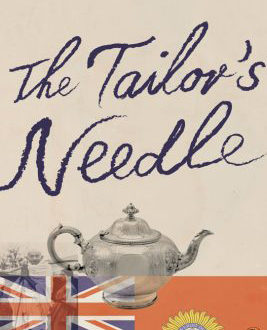
Rushdie, History, and Joking Seriously
Rushdie and Bombay
If Salman Rushdie had not lived in Bombay in his early years, Midnight’s Children would probably be different. Bombay is a city that throws you into a local and a global culture simultaneously. It teaches you to be less critical, perhaps; to turn everything into a joke. If you are creative, Bombay helps you to anchor your imagination in the wild seas. Bombay has nature as well as the civility or criminality of the metropolitan town. The British have left an impact on Bombay no doubt but the Indian (the Hindu, the Parsee, and the Muslim) culture is deeply entrenched. This town allows newer ideas, fashions, and influences to seep in constantly. But it also holds on to something in the past. A distinct sense of historicity prevails in Bombay along with a consciousness of how the powerful will always make a dent on the space of this town.
Rushdie takes Hinduism more seriously than Islam
Rushdie allowed his imagination to flirt with Bombay, and of course, did a number of other things, in order to become what he is. But there is a distinct Indianness that he cannot escape. The effect of Pakistan, and even Islam that is distinctly placed in his conscious mind as his own (the way he creates the Muslim characters reveals this), has had much less influence on his thought than traditional India. In fact, Hinduism has absorbed diversity, and so has Bombay. The author is drawn into Hindu philosophy even as he wants not to get into it full-heatedly. Hindu gods and goddesses cannot be kept out of his mind, even when he sees them a-religiously.
Methwold
Salman Rushdie’s reading is phenomenal and it largely makes him what he is. When he creates a character such as William Methwold, history seems to speak through him. We must remember that the original planner of Bombay, bearing the very same name, was a Brit who lived in the sixteenth century. Rushdie’s Methwold is conscious of his ancestry; quite proud of it too. Rushdie is Indian enough to notice such stuff objectively, without making too much of a noise about it. The comic aspects of peoples’ attitudes are just dropped in without making a Dickensian fuss about them. Methwold is the biological father of the narrator and central character, Saleem Sinai. Like the typical British national, he has quietly done his job and left the place to let its confusion take care of itself. Rushdie can see all this as part of a larger design of history; something that we can do little about. Why even be too critical about it? Rushdie seems to ask. In more recent years, Rushdie has begun to get a little more critical of the British and the Americans, and that is probably why he has never written anything quite like Midnight’s Children again. The negative capability to let things be as they are instead of getting involved with too much fault-finding can keep an author sane.
The Magical related to the Hindu
Hindu mythological machinery is vital to Rushdie’s magical realism because it contains the magical element in its myths and narratives. It makes serious statements through fantasy, dragging even an epical historical sense into it. Rushdie is different to Marquez because he is pulled into Hindu scriptures to a much greater extent than Marquez ever is.

You May Also Like

Authors of Colour Querying White-Skinned Agents
January 22, 2022
Fictional Worlds & the Force of Fiction
August 22, 2022
2 Comments
Ayush Dubey
Nothing could have done more justice. Absolutely love your lucid writing style. Reading your posts on facebook as well as here on your blog is the ultimate peace to a reader’s mind that a writer can provide him with.
lrsharma
Thanks, Ayush. I’m glad you like my writing.